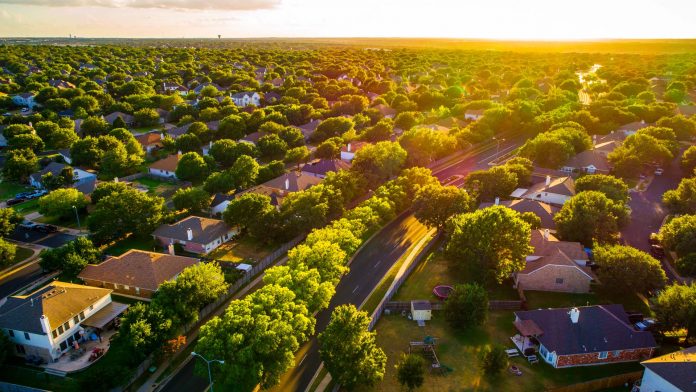Key Highlights
- Pandemic-inspired race to buy suburban homes sparked national affordability crisis
- State-by-state earnings needed to buy average home in each state
Pandemic-Inspired Race to Buy Home in Suburbs
As the COVID pandemic seeped into the American landscape and remote working reached its tipping point, those who could afford to take advantage of historically low interest rates and buy a single-family home in the suburbs did so. One of the results? According to the US Census Bureau, US homeownership rates jumped nearly +3% to approximately 67% in 2020.
Race to Become Homeowners Translated into Affordability Crisis
Another result from this pandemic-inspired race to become homeowners is that surging demand for housing amidst record low inventory levels nationwide has ignited a steep spike in home prices.
Now, despite record-low mortgage interest rates, many potential homebuyers will remain “potential” in states that require salaries higher than buyers’ current median incomes.
Yearly Income Required in Order to Afford Average Home in All States
With the national median home price of $346,800, here’s a look at necessary yearly incomes to buy a home in all 50 states (figures based on average home value and average monthly payment in each state), according to the career planning site Zippia.com:
Alaska $60K – $69K
Washington $80K+
Oregon $70K – $79K
California $80K+
Hawaii $80K+
Idaho $60K – $69K
Nevada $70K – $79K
Utah $70K – $79K
Arizona $60K – $69K
Montana $60K – $69K
Wyoming $50K – $59K
Colorado $80K+
North Dakota $50K – $59K
South Dakota $50K – $59K
Nebraska $40K – $49K
Kansas $40K – $49K
Oklahoma $40K – $49K
Texas $50K – $59K
Minnesota $60K – $69K
Iowa $40K – $49K
Missouri $40K – $49K
Arkansas $40K – $49K
Louisiana $40K – $49K
Wisconsin $50K – $59K
Illinois $50K – $59K
Indiana $40K – $49K
Kentucky $40K – $49K
Tennessee $50K – $59K
Mississippi $40K – $49K
Michigan $40K – $49K
Ohio $40K – $49K
West Virginia $40K – $49K
North Carolina $50K – $59K
Alabama $40K – $49K
Pennsylvania $50K – $59K
Virginia $60K – $69K
South Carolina $50K – $59K
Georgia $50K – $59K
New York $80K+
New Jersey $80K+
Maryland $60K – $69K
Florida $60K – $69K
Connecticut $60K – $69K
Delaware $60K – $69K
Vermont $60K – $69K
Rhode Island $70K – $79K
New Hampshire $70K – $79K
Massachusetts $80K+
Maine $60K – $69K
Do these numbers jive with your numbers?
Price Appreciation Now Outpacing Wage Appreciation in 90% of National Housing Markets
According to ATTOM Data Solutions, home price appreciation is and has been outpacing wage appreciation for a while now. Median prices of single-family homes and condominiums are less affordable than historical averages in 63% of US counties. This is an increase of +9% from one year ago.
Something that may help…President Biden is proposing a $15,000 first-time homebuyer tax credit to help buyers come up with a down payment in the midst of this affordability crisis.
Thanks to CNBC.

























